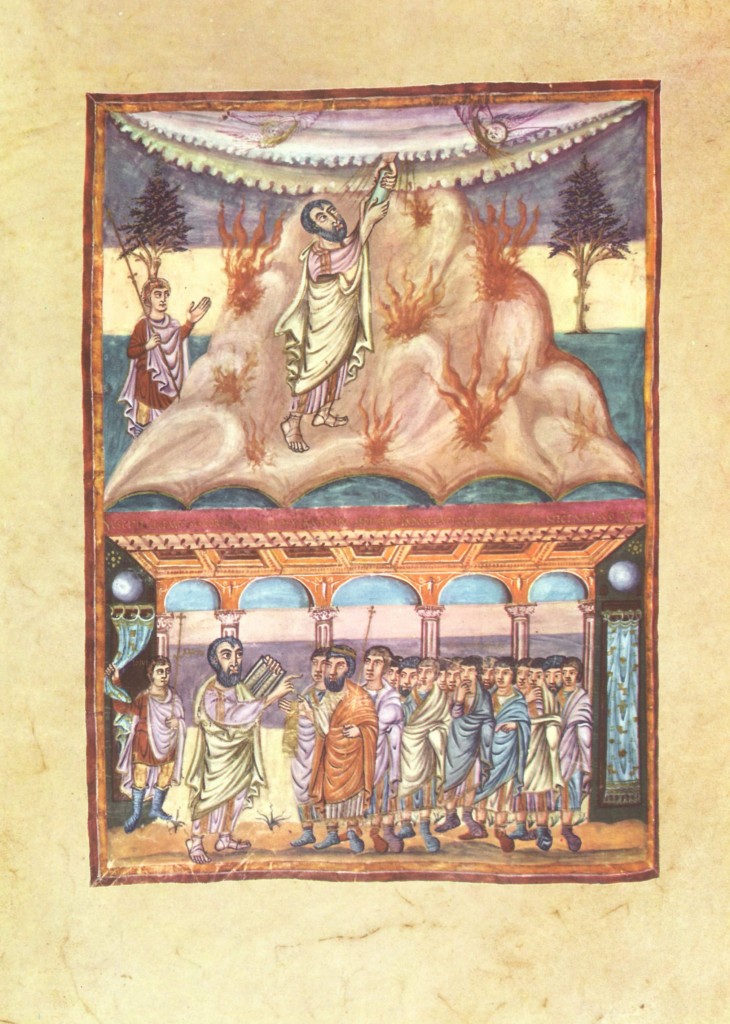During the season of Lent, there’s a word that keeps cropping up: observe. We are urged to “Observe a Holy Lent” or we discuss various Lenten observances that different people find enriching or valuable to their spiritual lives. Again and again the word “observe” crops up, and there’s no getting around it.
The word itself has several meanings, one of which is to watch, notice or study something as being significant. Another is to act or comply with a law or standard, be it legal, moral, religious, or ethical. We have professional war correspondents and peace organizations observing the action in war zones either to report the news or try to find a way to resolve the problems causing the aggression. Referees in sporting events are supposedly impartial observers whose job is to maintain adherence to the rules, keep order and adjudicate disputes. At Vatican II, non-Roman representatives of other denominations and faiths were invited to observe the historic meeting. And then we’re told to observe the speed limit, observe holidays and city/town council meetings as well as trends in finance.
In the Deuteronomy reading, God commands the people to “observe these statutes and ordinances” and to “observe them diligently with all your heart and with all your soul.” It isn’t enough to just stand back and look at them, God wants the people to deliberately and fully keep the commandments, ordinances, and statues to which they had agreed and to obey God in all things. Those statues, etc., weren’t just words laid out in a contract that could be ignored if it got inconvenient. They covered legal, ethical, moral and religious aspects of life, and if one in any one category was broken, it broke the chain that bound all four aspects together. The purpose of the observances was not only to do what God wanted, it was also to bind and strengthen the bonds between people and which included God as the center.
When we observe God’s laws, we are responding to an agreement thousands and thousands of years old. Some of the laws might be outdated but we can look at what that particular law represented at the time it was first heard and find parallels in our own lives now. The price of ignoring the agreement and the things the people were called on to observe physically, emotionally, spiritually, ethically, morally, and just about any other-ly a person could think of, is living in disharmony with fellow human beings, nature and the many elements that compose it and with God as well. It is a sort of package deal. When one part of the body is ill, the rest of reacts to it and tries to bring things back to normalcy. Something in disharmony does not function well, and we can’t always just ignore it and think God will fix it for us.
During Lent we try not to do things we normally do and sometimes do things we ordinarily wouldn’t do. We call them observances and we approach Ash Wednesday with a definite idea of what we are going to do to observe this Holy Lent. Some will give up some treasured little habits or vices like chocolate, coffee, eating meat on Friday or even for the whole of Lent. Some will endeavor to pray more, take more exercise, or do more spiritual reading. Some will take on things like helping in soup kitchens, food banks, and other places where they can be of service. At the beginning we fully intend to keep those observances we established for ourselves. Unfortunately, like a lot of New Year’s resolutions, they don’t make it past the first week.. Still, just giving it a try is a point in their favor even if it seems like a failure to them.
None of us will ever completely live up to the agreement made with God but then, even Babe Ruth never hit a home run every time he came up to the plate. The things is to keep trying, keep the eyes focused on God. Jesus distilled the agreement down to two simple things for us to do – love God and love our neighbor. If we can do those two things, observe them wholeheartedly and faithfully, especially during Lent, we might find our faith deepened, our lives more fulfilling, and the world a better place for us and for everyone else.
Linda Ryan co-mentors 2 EfM Online groups and keeps the blog Jericho’s Daughter . She lives in the Diocese of Arizona and is proud to be part of the Church of the Nativity in North Scottsdale.
Image: Karolingischer Buchmaler – Licensed under Public Domain via Wikimedia Commons

